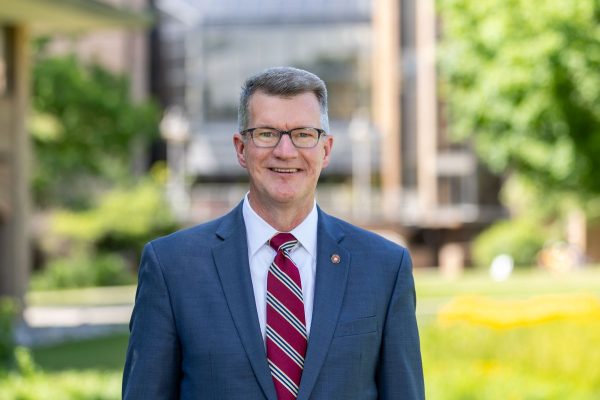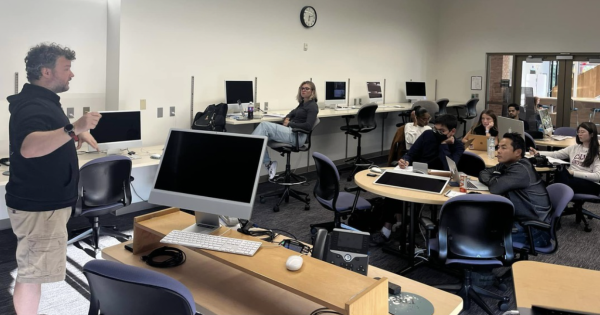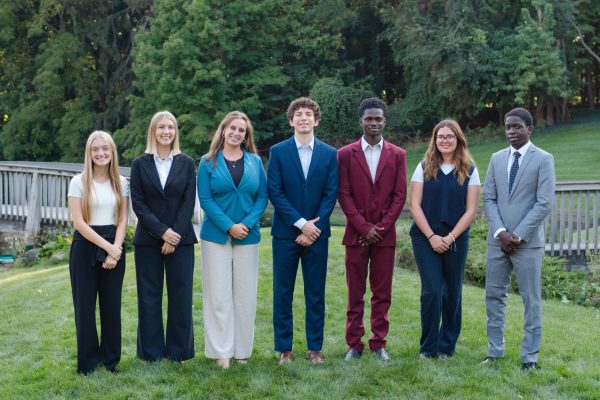A season for stories: English professors weigh in on the banned books debate
“Books are provocative by nature,” according to Lew Klatt, an English professor specializing in poetry. Art elicits emotion; English Professor Linda Naranjo-Huebl said negative knee-jerk reactions to books that contradict the dominant narrative are the reason “such books have been under fire for quite some time.”
Instances of book banning have recently increased across the country, according to a New York Times article from February 2022.
Jane Zwart, English professor and co-director of the Center for Faith and Writing, attributed this phenomenon to fear. “I think people who want to ban books tend to be afraid of stories that they cannot control,” she said. “Every story comes freighted with arguments about the world.”
Stories of pain, heartbreak and discrimination, underpinned by an emotional argument for justice, will change people’s minds. The potential changes of opinion and action prompted by powerful books written by ethnic, gender and sexual minorities provoke schoolboards run by the dominant cultural group to ban said books, according to Naranjo-Huebl. They also provide valuable models for readers who may be marginalized. “As minorities of any sort become empowered by reading stories that include them, they generally become personally empowered,” said Naranjo-Huebl.
Klatt acknowledged the often horrible nature of books that include stories about evil; however, he also said “maybe the disgusting qualities [of a book] are just simply describing the world as it is. Is that part of literature’s job?” He implied that the answer to this question is yes: “Unless we diagnose the problem, we will never be able to remedy it.” Literature requires discernment to find truth; challenged books are no different. “You cannot practice discernment on what you silence,” Zwart said.
From a Reformed perspective, banning books isn’t beneficial, either. Zwart said, “my faith insists that every human being has a story that God cares about.” Additionally, according to Zwart, in order to act as agents of renewal, Christians must engage with the world as it is, fallen as it is. For Klatt, banning books seems like it is pitting “Christ against culture” rather than adhering to the Christian understanding that Christ can and will transform culture.
Books are not banned at the college level; most disputes and challenges happen in K-12 education, said Naranjo-Huebl. Being college professors, both Klatt and Narajo-Huebl don’t have to weigh the mental and emotional maturity of their classroom as much as other teachers do, but they said that discretion is necessary when determining what kinds of books should be read in classrooms of younger grades. Naranjo-Huebl said, “I totally respect [teachers] saying ‘I’m not going to teach this book because it deals with atrocities that I don’t think my students are ready for.’ What I don’t respect is saying that ‘I, therefore, want the book banned.’” She also differentiated between discretion regarding telling the stories of marginalized groups in America and decisions regarding addressing issues such as suicide and sexual assault. Naranjo-Huebl said the former must always be taught in age-appropriate ways, while the latter may be a bit more dependent on maturity.
For students in their classes who may have trauma, the professors said that while they assign hard books, they give trigger warnings about specific themes and events, and they do provide accommodation if necessary.
Klatt said, “there is a time and season for everything.” Even if a book is good and necessary, sometimes it isn’t right for an individual at a given time. Determining this requires discernment and openness, he said.
Banning books has never really worked in America, said Naranjo-Huebl, and she doesn’t anticipate it working now. Banned books tend to attract more readers, giving weight and attention to these stories, which she said is wonderful because “the best way to work for true equality and true justice is to hear each other’s stories.”







